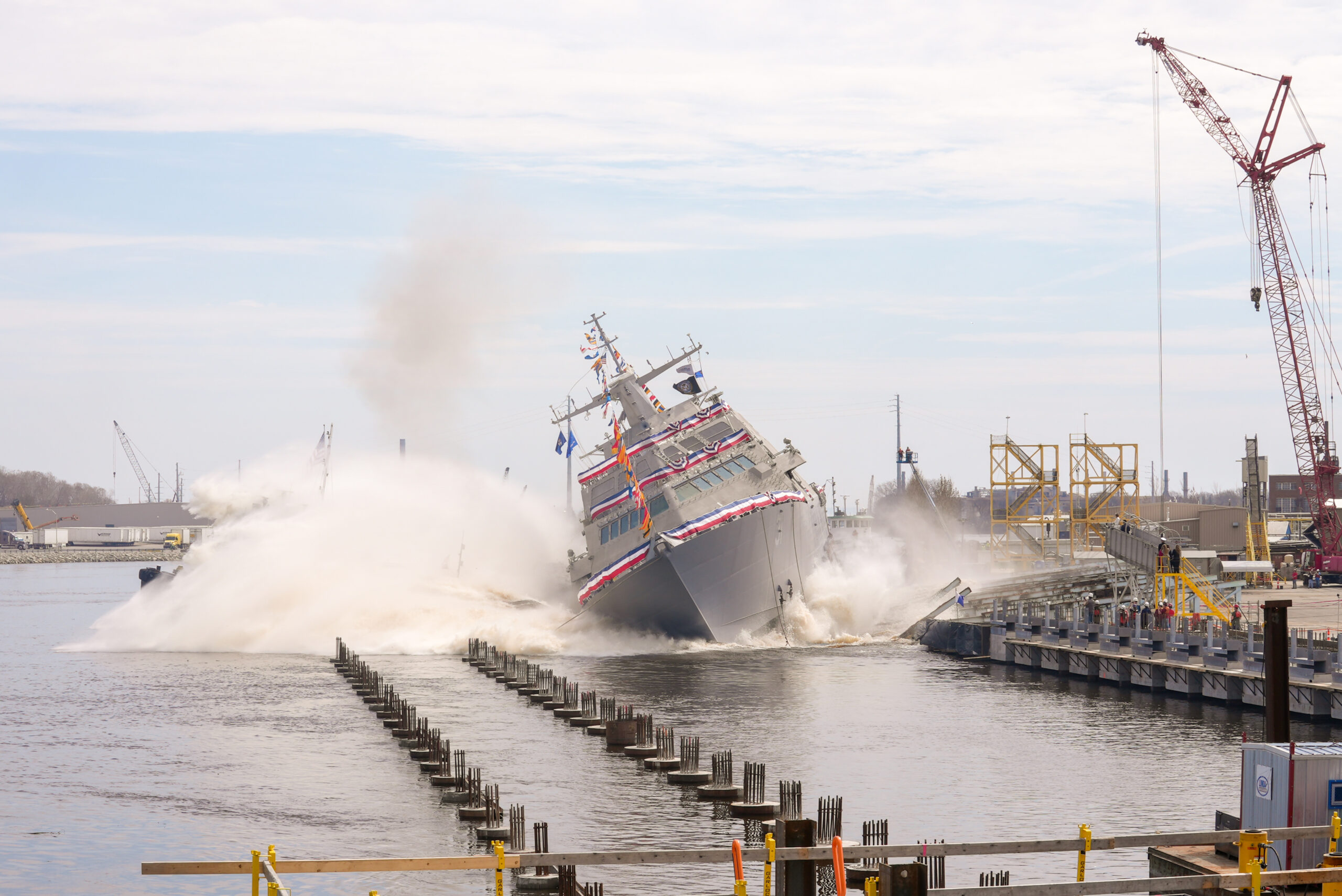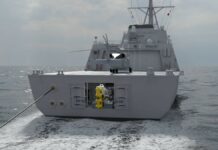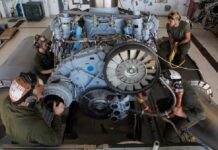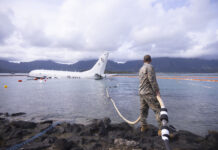The last Freedom-variant Littoral Combat Ship (LCS), to be known as USS Cleveland (LCS 31), was damaged upon launch on 15 April 2023 when it struck the tug boat pulling it into the water.
The accident, which took place at the Lockheed Martin-owned Fincantieri Marinette Marine shipyard in Wisconsin, happened as the ship was being side-launched into the Menominee River by a tugboat attached to it with a bow line. With the tug too close to the LCS as the sled holding it was released, the tug was engulfed by a sizeable wave and its stern clearly struck.
Ships are typically side-launched when the surrounding water is not deep or expansive enough for a lengthwise launching down a slipway.
US magazine Newsweek quoted a US Navy spokesperson telling it that “during the launch of the future USS Cleveland … unintentional contact occurred between the ship and a supporting tug. No personnel injuries occurred, but there was limited damage to LCS 31.

“The damaged area is well above the waterline and no flooding occurred,” the spokesperson added, but an “assessment was completed and permanent repairs are being planned”.
LCS-class vessels, of which there are monohull Freedom-class and trimaran Independence-class variants, were designed to be relatively small, agile, multipurpose warships for US Navy operations in the littoral zone. However, cost overruns and issues with the ships’ reliability and operational capabilities led to the build of the class being curtailed at 16 Freedom-class and 19 Independence-class vessels from an originally envisaged fleet of 52 ships.
Furthermore, three of the first four LCSs have already been retired, despite the first ship, USS Freedom, only being commissioned in October 2008. Independence-class LCS USS Coronado, which was commissioned in April 2014, was withdrawn from service in September 2022, meaning that it was only in service for just over eight years.
Peter Felstead











